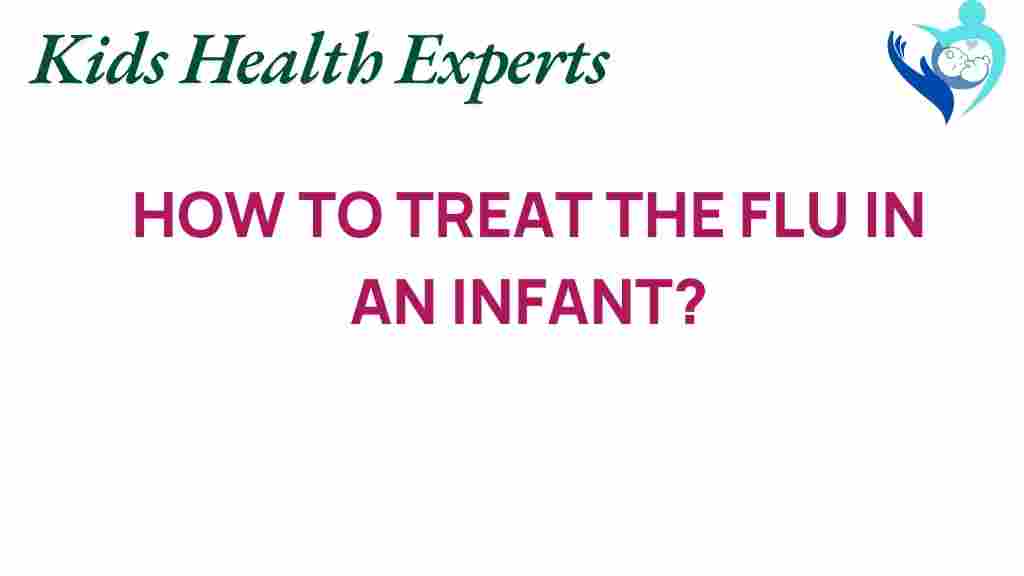As parents, ensuring the health and wellness of our infants is a top priority. The flu can be particularly concerning for young children, as their immune systems are still developing. Understanding flu treatment options, recognizing cold symptoms, and knowing when to seek pediatric care can make a significant difference in your baby’s recovery. In this article, we will explore essential treatments, tips for flu prevention, and general baby care practices that every parent should know.
Understanding Infant Flu
The flu, caused by influenza viruses, can affect anyone, but infants are particularly vulnerable. Symptoms can appear suddenly and may include:
- Fever
- Cough
- Sore throat
- Runny or stuffy nose
- Body aches
- Fatigue
- Vomiting and diarrhea (less common)
Recognizing these cold symptoms early is crucial for effective treatment. While the flu often resolves on its own, parents should be vigilant and prepared.
Flu Treatment for Infants
When it comes to flu treatment, the approach for infants differs from older children and adults. Here are some essential treatments that parents should consider:
1. Consult Your Pediatrician
Always start with professional medical advice. Your pediatrician can provide guidance tailored to your child’s specific health needs. If your baby exhibits severe symptoms, such as difficulty breathing, high fever, or dehydration, seek immediate medical attention.
2. Hydration is Key
Keeping your infant hydrated is vital during flu illness. Offer:
- Breast milk or formula for infants
- Small sips of water for older babies
- Oral rehydration solutions if recommended by your pediatrician
Dehydration can worsen flu symptoms, so monitor their fluid intake closely.
3. Fever Management
Fever is a common symptom of the flu. To manage fever in infants:
- Use acetaminophen (Tylenol) for babies over two months old, but always consult your pediatrician for the correct dosage.
- Avoid aspirin, as it can lead to Reye’s syndrome, a serious condition.
- Dress your baby in lightweight clothing to help regulate body temperature.
4. Nasal Congestion Relief
Nasal congestion can make it difficult for infants to breathe, especially when feeding or sleeping. To alleviate this:
- Use a saline nasal spray to moisten nasal passages.
- Employ a bulb syringe to gently clear mucus from the nose.
- Consider using a humidifier to maintain moisture in the air.
5. Rest and Comfort
Rest is essential for recovery. Ensure your baby has a comfortable sleeping environment. Holding or rocking your baby can also provide comfort and help them feel secure.
Flu Prevention Tips for Infants
1. Vaccination
Vaccination is one of the most effective measures against the flu. Discuss with your pediatrician about getting your infant vaccinated. The flu vaccine is typically recommended for children six months and older.
2. Practice Good Hygiene
Encourage regular handwashing with soap and water, especially after being in public places or after changing diapers. Use alcohol-based hand sanitizers when soap isn’t available.
3. Limit Exposure
During flu season, try to limit your baby’s exposure to crowded places. If someone in your household is sick, keep them away from the infant as much as possible.
4. Maintain a Healthy Environment
Ensure your home is clean and well-ventilated. Regularly disinfect surfaces that are frequently touched, such as doorknobs, toys, and changing tables.
5. Breastfeed if Possible
Breastfeeding provides essential nutrients and antibodies that can enhance your infant’s immune system. If you can, continue to breastfeed during flu season for added protection.
When to Seek Pediatric Care
- If your infant is less than three months old and has a fever.
- If the fever lasts more than three days.
- If your baby is showing signs of dehydration, such as dry mouth, decreased urine output, or lethargy.
- If your baby is having difficulty breathing or is unusually irritable.
Troubleshooting Common Concerns
Parenting an ill infant can be stressful. Here are some common concerns and how to troubleshoot them:
1. Refusing to Eat
If your baby is not eating due to illness, focus on hydration. Offer small amounts of liquids frequently, and try to gradually reintroduce food when they seem more comfortable.
2. Persistent Cough
A cough can linger even after other flu symptoms have improved. Keep your baby’s environment moist and consider consulting your pediatrician if the cough worsens or lasts more than a week.
3. Irritability
Illness can make infants irritable. Holding and comforting your baby can help. Create a soothing environment with soft music or gentle rocking.
4. Sleep Issues
Flu symptoms can disrupt sleep. Establish a calming bedtime routine, and ensure your baby’s sleeping area is comfortable and free from distractions.
Conclusion
Navigating infant flu can be daunting, but with the right knowledge and parenting tips, you can effectively manage your baby’s health during this challenging time. Focus on infant health by prioritizing hydration, comfort, and when necessary, seeking medical advice from your pediatrician. Remember that prevention is key; by implementing flu prevention strategies and maintaining a healthy environment, you can help protect your little one from the flu.
For more information on infant health and wellness, check out this resource. Additionally, always consult your pediatrician for personalized medical advice and support.
This article is in the category Care and created by KidsHealthExperts Team
